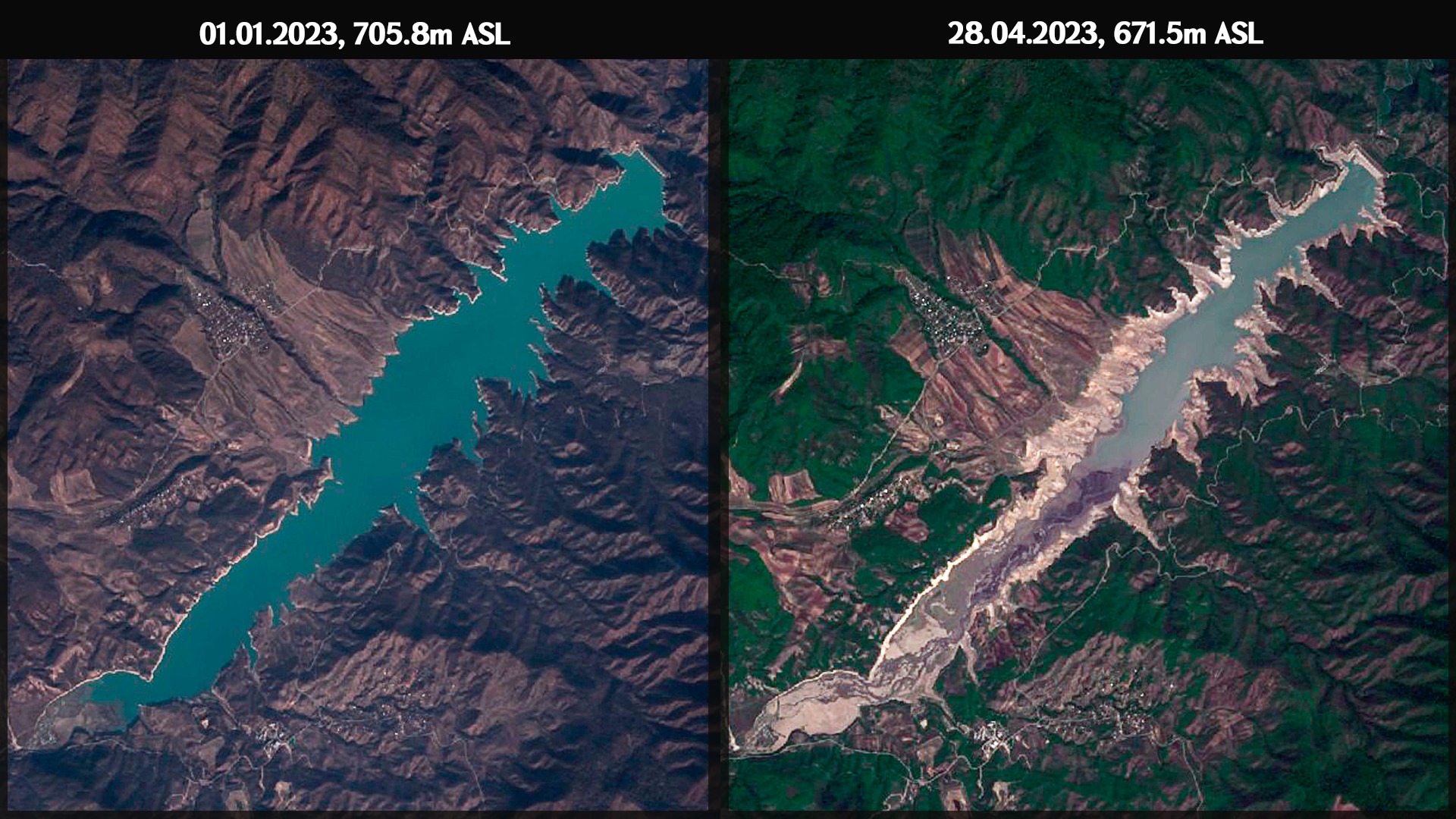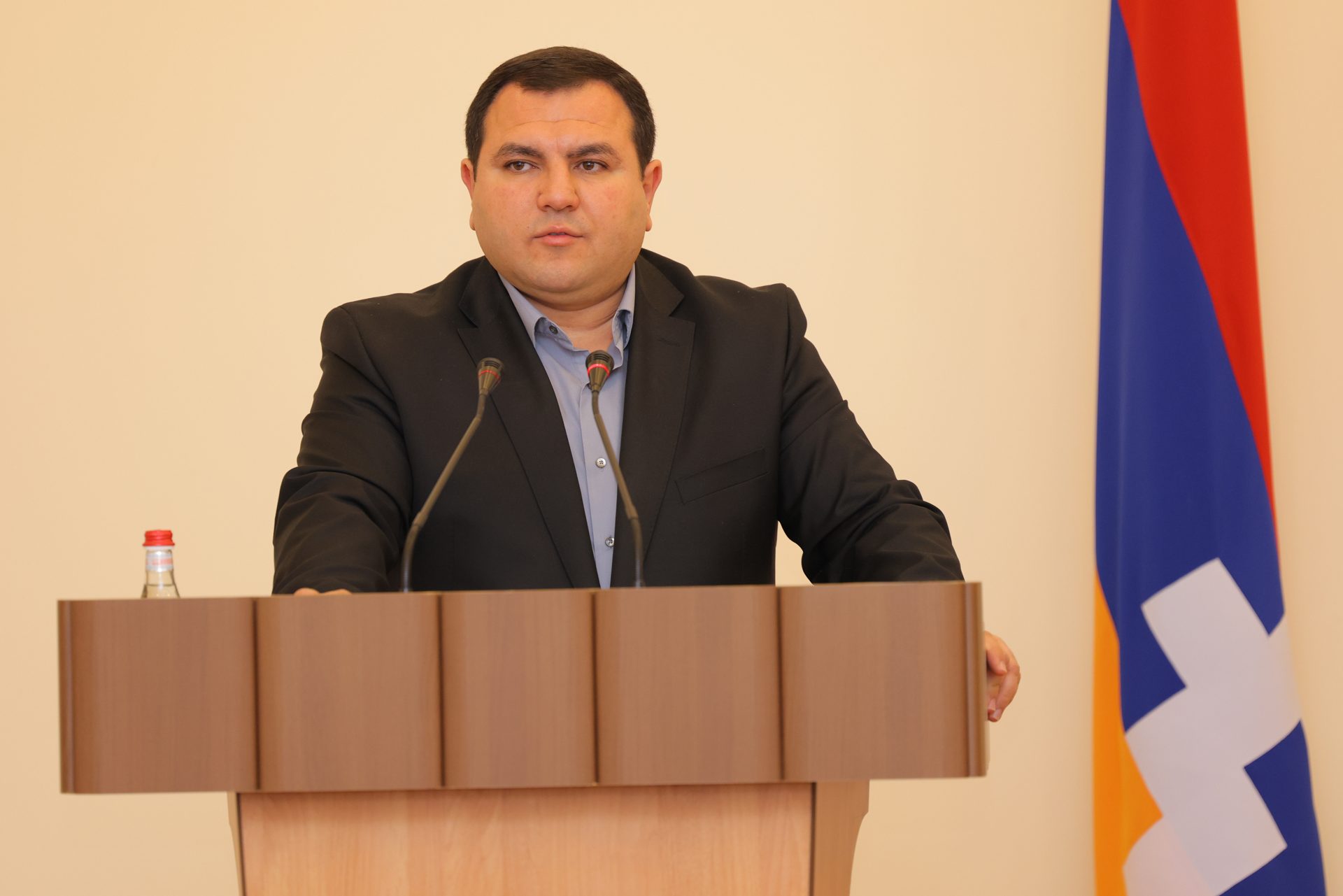Artsakh Republic State Minister Gurgen Nersisyan issued a statement about the energy, economic, humanitarian and environmental terrorism carried out by Azerbaijan in relation to the Sarsang Reservoir, in which it is said:
“In the conditions of the 146-day blockade of the Republic of Artsakh, since 9 January 2023 and for 117 days now, Azerbaijan has disrupted the electricity supply from Armenia to Artsakh through the only high-voltage power transmission line, carrying out energy, economic, humanitarian and ecological terrorism and causing additional difficulties and suffering to the people of Artsakh.
Both before and during the blockade, Azerbaijan regularly disrupted, and from 22 March completely cut off the supply of gas through the only Armenia-Artsakh pipeline, which has also led to serious humanitarian and economic problems, as well as to a forced increase in domestic electricity generation and overloading of energy supply networks.
Under such conditions, the Republic of Artsakh is forced to use only the domestic electricity generation infrastructure, consisting of 6 hydroelectric power plants, of which only the Sarsang reservoir power plant accounts for about 70 per cent of the total capacity. Since before the interruption of the electricity supply by Azerbaijan, the domestic production met about 30 per cent of the demand, from 9 January, in order to meet the minimum energy needs of the population, the government of Artsakh had to introduce a number of additional measures, including the suspension of the work of all major business enterprises, daily rolling blackouts, operation at maximum capacity of all existing power plants, etc.
As a result, not only a number of humanitarian and domestic difficulties have emerged, but also serious environmental challenges associated with the rapid depletion of the resources of the Sarsang Reservoir. Compared to the same period of last year, from 9 January of this year to today, almost three times more water was released from the Sarsang Reservoir, and the water inflow was almost two times less due to dry weather this year. Currently, Sarsang’s water resources have reached a critical limit of about 88 million m³ (about 15 per cent of the total capacity), approaching the dead (unusable) volume of about 70 million m³.
This situation not only puts at risk the prospect of electricity supply for the population of Artsakh and deepens their daily suffering, but has also resulted in a significant negative impact on the environment, including drying up of springs, deterioration of the microclimate, decline of flora and fauna, etc. If this situation is not immediately addressed and the normal power supply of Artsakh is not restored, this will inevitably lead to a sharp aggravation of the above-mentioned energy, economic, humanitarian and environmental problems and, ultimately, to a humanitarian catastrophe.
It is worth noting that during the entire period of independence, in contrast to the Soviet time, the water from the Sarsang Reservoir was used for irrigating also the agricultural lands (around 96,000 hectares) of Azerbaijan, since the it always kept the canal that irrigates the lands of Artsakh closed. However, by deliberately and criminally disrupting the electricity supply from Armenia to Artsakh, provoking an artificial energy crisis and forcing the Artsakh authorities to actively use the very limited water resources of the Sarsang Resevoir, Azerbaijan, in fact, in addition to exposing the people of Artsakh to energy, economic and ecological terrorism, also deprives its own population of the opportunity to receive enough irrigation water from the Sarsang Reservoir during the hot summer months. In fact, it was precisely for these same criminal purposes that the plainclothes agents of the Azerbaijani government or “eco-terrorists” acted so diligently, keeping the people of Artsakh under siege.
Faced with the threat of depletion of Sarsang’s water resources and the internal potential of Artsakh’s energy production, as well as the impending risk of a humanitarian catastrophe, we once again call on the entire international community, the relevant international structures, governments of countries and all those, genuinely concerned about the rights and security of the people of Artsakh, not to turn a blind eye to this catastrophic energy, humanitarian, environmental and economic situation and undertake immediate measures to make Azerbaijan abandon such medieval, terrorist and cruel behaviour towards both the people and the environment.
Attached are satellite images of the Sarsang Reservoir as of 1 January and 28 April, 2023, with surface elevations of 705.8 and 671.5 metres above sea level, respectively.”
















